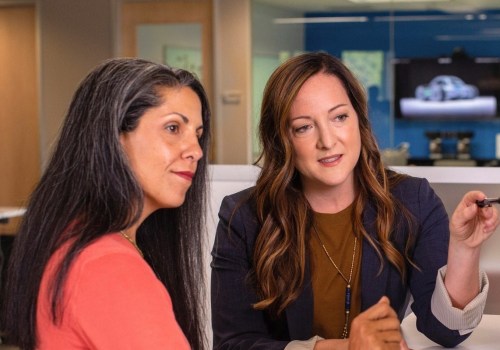Common Steps to Becoming a Mental Health Counselor or Earning a Bachelor's Degree. Earn a Master's Degree in Mental Health Counseling. Look for additional mental health counseling certifications. Maintain Your Mental Health Counselor License.
If you're interested in becoming a mental health consultant, there are several steps you can take to embark on this rewarding career path. First and foremost, gaining a strong educational background in psychology or a related field is essential. Additionally, acquiring practical experience through internships or volunteer work in mental health settings can provide valuable insights and skills. It's also crucial to stay updated with the latest research and developments in the field. For those interested in specializing in specific areas, such as ASD assessment in UK, obtaining relevant certifications or further education in that particular domain can be beneficial. By combining knowledge, experience, and a passion for helping others, you can pave your way toward becoming a knowledgeable and compassionate mental health consultant.
Mental health consultants' salaries vary depending on their level of education, years of experience, and the type of work they perform. Some mental health consultants may work as independent contractors, while others may be employees of an organization or company. Mental health counselors help clients navigate difficult life experiences, help them set goals, and provide critical emotional support. They enjoy rich and rewarding careers where they make a difference by using their listening, problem-solving and interpersonal skills.
More than 43 million American adults face mental illness problems each year, according to the National Alliance on Mental Illness (NAMI). As issues such as addiction, childhood trauma, and dementia in an aging population drive demand for licensed counselors, the need for them is expected to grow 20% between now and 2026, according to the U.S. To be licensed in most states, prospective mental health counselors must complete 60 credit hours of graduate counseling courses. National accreditation bodies determine the core content that students should master throughout their experience, Wilson said.
Curriculum created with national accreditation and state statutes in mind. “We decided on 18 courses that would meet both national and state criteria, leaving two courses that could be optional, depending on where you live,” he said. In practice, students work with real clients under the supervision of a licensed counselor for a minimum of 100 hours. Each internship requires students to spend a minimum of 300 hours, usually 30 hours per week, working at approved sites under supervision.
Many schools cultivate relationships with sites, but students are often asked to look for their own sites and approve them, Hudspeth said. In some states, before students sit for an exam and apply for their licenses, they must demonstrate hours of supervised graduate work. In Virginia, for example, graduates must purchase 3,000 hours of graduate counseling work before they can take the licensing exam, Welch said. States require 2,000 to 4,000 documented hours to obtain the license.
To verify state requirements, visit the American Counseling Association or the National Board of Certified Counselors. Our 300-acre campus in Manchester, NH, is home to more than 3,000 students and we serve more than 135,000 students online. Visit our SNHU page to learn more about our mission, accreditations, leadership team, national recognition and awards. Next, we'll go deeper into the work of mental health counselors, but first we'll outline common steps to becoming a mental health counselor.
Individual state requirements will vary and are subject to change, including licensing standards, test eligibility, and appropriate routes, and may differ based on individual student backgrounds. Students must do their own due diligence and determine the appropriate pathway and type of license for themselves. Licensed professional counselors (LPC) and licensed mental health counselors (LMHC) are two different titles for counselors who have been licensed in their state. Mental health consultants can advance their careers by hiring more clients and increasing their fees.
Choosing the right specialty is always an important step when researching how to become a mental health consultant. A mental health counselor is not the same as a psychiatrist, who is a medical professional licensed to prescribe medication for diagnosed disorders. This trend is driven by a number of factors, including the increasing prevalence of mental health disorders and the growing acceptance of mental health as a legitimate concern. Mental health counselors combine psychotherapy with problem solving to help individuals, couples, families and groups dealing with a variety of mental health problems, according to the American Counseling Association (ACA).
Mental health counselors develop skills through education and training to safely, legally, and effectively address the needs of their clients who may have a variety of mental health diagnoses. Mental health counselors work in the public and private sector in a variety of settings, including community centers, hospitals, public schools, universities, veterans health agencies, outpatient centers, recovery centers, professional centers, faith-based institutions, and private practices, according to the American Counseling Association. Counselors in the mental health field take a holistic, client-centered approach to providing care for their clients. Since they specialize in directly affecting the health of clients, it makes sense that you need at least a bachelor's degree to become a mental health consultant.
These days, people in counseling settings are dealing with complex post-traumatic stress disorder, addiction, or chronic mental illness, he said. As people age, they are more likely to experience mental health problems, such as dementia or depression. Mental health counselors also serve clients who may not have a specific diagnosed disorder, but who need support to overcome challenges including anger management, bullying, grief, self-esteem and body image, relationships, chronic stress, and other issues. They will also be needed to provide counseling services to people who are struggling with mental health problems.
. .



